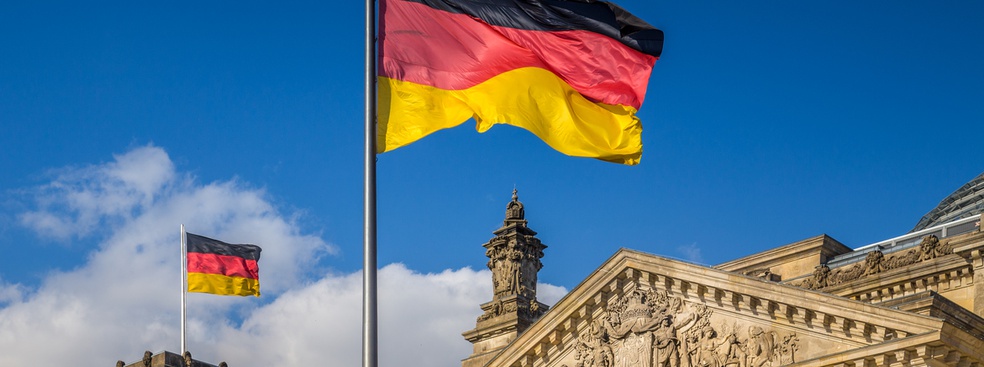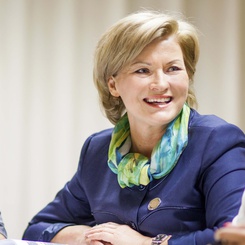Both academics and the wider public seem convinced that a good leader must be charismatic, well spoken, and passionate. Leaders that fit this description, they say, are best able to inspire people around them to follow their vision. Business School professors, too, regularly encourage students to look for inspiration in leaders who fit this narrow description: leaders like Lee Iaccoca, Jack Welch, Akio Morita, Antoine Riboud, Richard Branson, or Steve Jobs.
Angela Merkel’s leadership style doesn’t fit well within this definition and she would likely come in low on the aforementioned leadership traits. Nevertheless, she was Time Magazine’s Person of the Year in 2015 and is regularly referred to by the press as the most powerful woman in the world. According to Time, “her political style [is] not to have one; no flair, no flourishes, no charisma, just a survivor’s sharp sense of power and a scientist’s devotion to data.”
In power since 2005, Angela Merkel’s tenure is among the longest in any democratic country. All the while, her atypical personality and conduct have intrigued many biographers and inspired dozens of books. Professors and students of political science will, no doubt, dedicate a great deal of time and energy to the study of her leadership style. Business School faculty and students would be well advised to do the same.
Before examining Mr Merkel's 'style' more closely, it’s important to guard against excessive fascination. Without diminishing her personal merit, much of Merkel's "power" is tied to her position as chancellor of a great economic power. On the day when she is no longer in power, we will likely have a different perception of her 'power'.
With that in mind, let's take a look at Angela Merkel’s journey and how she’s come to occupy such a historic role despite her low score on our “charismatic leader” index.
Observers often mention her science background and describe her as someone with a taste for cold facts and data analysis. In this respect, Merkel is very similar to Vladimir Putin and Barack Obama, who are also described as cold and calculating.
While her scientific background has shaped her decision making style, we should not forget that she was also schooled in politics for a long time and spent years meticulously learning the political ropes. It’s often forgotten that 15 years separate her political debut in 1990 from her election as Chancellor in 2005.
Chancellor Kohl took Angela Merkel under his wing, and it was thanks to this support that she was elected to the Bundestag in 1990, and awarded a first seat in the federal government shortly afterwards as the Minister for Women and youth. Eight years later, when the CDU lost the elections and found itself in the opposition, Angela Merkel became Secretary General of the party, under the presidency of Wolfgang Shaüble.
When Kohl and Shaüble were embroiled in an illegal financing scandal two years later, Angela Merkel did not hesitate to ‘murder the father' and publicly call out her former mentor. After the forced resignation of Shaüble, she was elected president of the CDU.
By showing herself to be uncompromising on principles and taking on her mentor, Angela Merkel earned the respect of her fellow citizens. After five years as opposition leader, Merkel won the 2005 elections and became Chancellor, a position she will most likely hold until 2021.
Angela Merkel's distinctive style has taken shape throughout her life and political career. It can be summed up in five words: courage, rationality, authenticity, humility, and duty.
Angela Merkel has shown courage on several occasions. As a freshly minted PhD in physics, she applied to an assistant professor position at a university in the former GDR and was told that she could have the job if she reports “deviant” behavior to the political police (the Stasi). She declined and was satisfied with a less prestigious research position. SInce then, she’s made many courageous decisions like taking responsibility for accepting a million refugees despite the unpopularity of the decision.
Angela Merkel's rationality, a legacy of her scientific training, has been discussed above and does not require further comment.
Angela Merkel is recognized as an authentic, principled person who does what she says. This personality trait makes her predictable and inspires confidence in a country and a culture that demand predictability.
Merkel’s humility is observed in her professional and personal life. Her office is like any manager's working environment. Ministers, MPs and members of her staff say she’s accessible and agreeable. Unlike other 'leaders', she does not shine at the expense of her entourage. Outside work, Angela Merkel leads an almost normal life. She is often seen shopping in the supermarket, flanked however by her bodyguards.
Finally, Angela Merkel seems to be imbued with a sense of duty towards her country. Having grown up in a torn Germany and in the part that suffered most from the circumstances of the Second World War, Merkel does not seem to be obsessed with her own career or for making a name for herself in History. She is there first to serve her country and not to serve herself. That makes a big difference.









